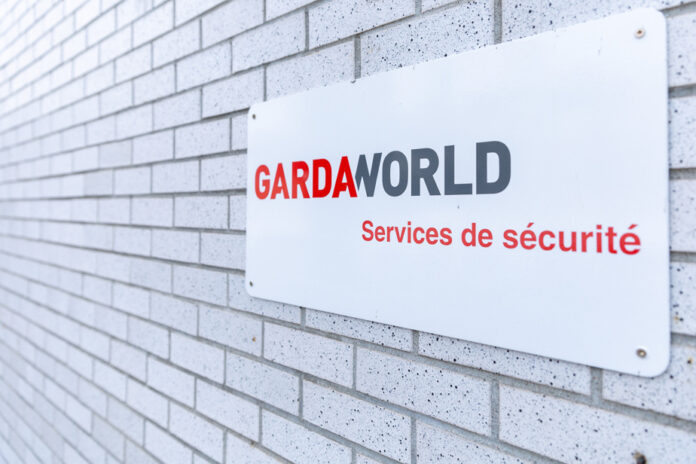(Montreal) Seven employees of Montreal-based security giant GardaWorld languished in detention for nearly two months after their arrest earlier this year by a powerful Libyan militia.
The ordeal experienced by these workers highlights the ongoing risks associated with the security industry in a volatile region, as well as the financial burden imposed on foreign companies by armed groups and state actors, amid a fluid power struggle in the Libyan capital, Tripoli.
GardaWorld, one of the largest foreign security companies operating in Libya, offers services ranging from armored vehicles to security analysis for diplomats and multinational corporations. But its role came to an abrupt end on April 11, when the Rada militia arrested GardaWorld contractors who were providing security for the European Union Border Assistance Mission at Tripoli’s Mitiga airport. in Libya.
The company cited an “administrative imbroglio” as the reason for the detention of the seven men, who worked as part of GardaWorld’s partnership with another security company, France’s Amarante International. The security group consisted of Libyan drivers and foreign armed guards; there were no Canadian nationals.
GardaWorld assures in an email that these workers and their families “have received all the necessary support”. The company indicates that all these people were released “as early as the first week of June”, without the reason for their detention having changed.
However, the Rada Force, one of the most powerful militias in the Libyan capital, made the arrests on the grounds that the employees did not have state permits to carry firearms, according to an article in “Africa Intelligence.” GardaWorld’s license, according to the article, was instead issued directly by the EU Border Assistance Mission in Libya, which supports the Libyan authorities’ efforts to curb the passage of migrants to Europe.
Libyan observers also say the arrests constitute a power play by militias and government security services, resulting in the expulsion of some foreign security companies and the imposition of “taxes” on those that remain. .
“I would see it above all as an extortion measure, which is part of the diversification of the dominant militias in Tripoli towards new sources of income,” said Wolfram Lacher, senior associate at the German Institute of International Affairs. and security, in Berlin, and author of the essay “Libya’s Fragmentation” on this country. “These groups are getting more and more creative. »
After arresting the workers, the Rada Force, which reports to the Interior Ministry and has links to the presidential council, likely handed them over to the state’s general intelligence service, Lacher believes.
Ben Fishman, a senior fellow at the Washington Institute for Near East Policy, says all arrivals to Tripoli pass through the airport, where the Rada militia operates a detention center to support its security infrastructure.
“Various European missions, in particular, have to negotiate these issues every day, and if they are not careful, it can turn into a diplomatic incident,” Mr. Fishman said in a recent interview.
A “tax” levied
Days after the arrests, a Tripoli court opened an investigation into alleged irregularities at GardaWorld, prompting some of the company’s staff to leave the country, according to local media.
There was finally the intervention of the Installations Security Authority, another division of Libyan security in the tangle of official and semi-official appendages of this fractured state. The Authority contacted embassies and international companies that used foreign subcontractors to provide them with an update – and a proposal.
“They were told, ‘Well, actually, we’re now the only party authorized to provide security.’ And they compiled a list of 18 licensed foreign security companies, including GardaWorld. But in exchange, the Facilities Security Authority imposed a 6 percent tax on the contracts of these foreign security companies,” Lacher said.
This “tax” is expected to eventually rise to 9 percent, he said, noting that much of the public funds go to various rival militias and the often competing security services to which they are linked.
GardaWorld declined to answer further questions about the situation in Libya. “GardaWorld does not provide any information relating to its employees, its customers’ contracts and does not make public information relating to our activities in any of the countries in which we serve our customers,” said in an email the company, which employs more than 132,000 workers in dozens of countries.
The company’s eight-week crisis in Libya, where fresh clashes broke out last month between the Rada Force and rival “Brigade 444” militia – killing more than 50 people – demonstrates the dangers of operating in a region that experienced six years of civil war and more recent intermittent fighting that followed the overthrow of dictator Muammar Gaddafi in 2011.
Meanwhile, GardaWorld has lost at least one customer. German development agency GIZ said its relations with the company had been severed due to the arrests.
“Our collaboration with GardaWorld in Libya has ended. For security reasons, we cannot disclose further details about cooperation with service providers in Libya,” a spokesperson said in an email.
Several months ago, GardaWorld’s client list in Libya included German electronics giant Siemens, Italian oil group ENI and the British embassy in Tripoli, according to media reports in Europe and North Africa.















